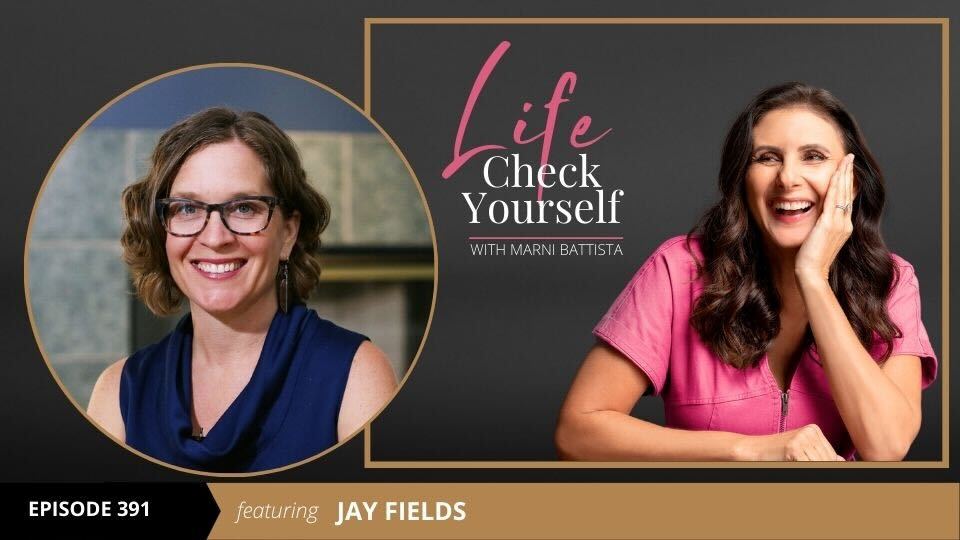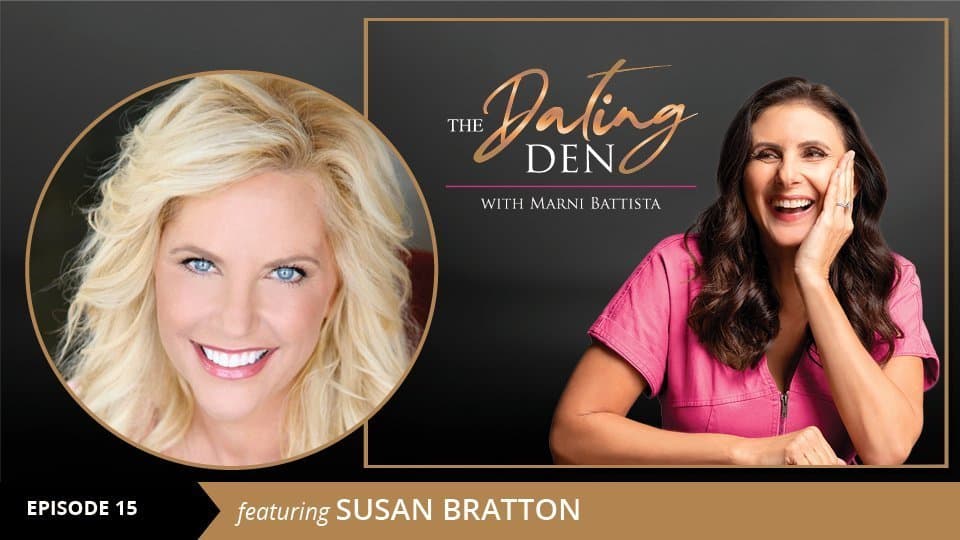Life Check Yourself Episode 391 How to Leverage Your Body, Brain and Nervous System to be True to Yourself in the Relationships that Matter to You Most with Jay Fields
Marni welcomes Jay Fields, who is an educator, a coach and an author, in the Life Check Yourself studio, to talk about how you can have your own back and learn to process your feelings instead of taking unhealthy coping mechanisms from childhood into your adulthood. Jay also gives Linked learning courses on managing your emotions at work and practices for regulating your nervous system and reducing stress. In this episode, the duo discuss how it is we can regulate ourselves and hold our feelings in a healthy way that we can then communicate to those around us. And it starts from an internal standpoint.
Takeaways from this episode:
- Give people the right read
- How to train your body to have a different reaction
- Don’t pretzel yourself
- How to differentiate between awareness and transformation
- What are the practices that help you regulate?
- Take responsibility
Do You Have Your Own Back? [01:53]
Having your own back is essential, especially in a society that rather teaches us to be smart, and to do what needs to be done without confronting our own experiences.
When you don’t have your own back, the experience is more external, almost like you’re looking to someone else to tell you how you should act or react. It’s when you experience situations in terms of what you think people expect of you, and adapt to that expectation. Rather than setting boundaries, you turn into a chameleon to please those around you, be it socially or at work.
Having your own back is first knowing that you have an experience that you can track, and then knowing how to be an advocate for that; and soothe yourself in that, whatever it is you need in that moment.
The embodiment of not having your own back looks like you’re leaning outside of yourself; you’re not holding your own energy but rather you’re more concerned with what’s going on externally. And what happens is that you’re not quite there. And people, whether or not they’re aware of it, can feel it. It’s about how we hold ourselves from an energy standpoint.
A person that doesn’t have their own back tends to have a dysregulated nervous system, and that can manifest in several ways. For an immobilized or a down regulated system, the person is like a turtle in a shell, they’re withdrawing.
Be Soft [ 11:05]
When you’re dysregulated, one of the things to look at is what are the practices that help you regulate? And this differs from one person to the other. But a step towards regulating is bringing yourself back down enough, so that you have access to your thinking brain.
When a person is dysregulated, they’re in survival mode. And the key to fixing it is tracking what’s happening within your own body. Once you’ve managed to do that and be aware of it, then you can use that knowledge to craft what you might want to say in the way that you want to say it.
It’s about understanding what you felt at any given moment, and acknowledging that feeling. It’s about how you can soothe it, which is different than actually regulating. Soothing is speaking truth to power.
A lot of women tend to skip the soothing step and either try to get it from someone else, or decide to become super self-sufficient with an’I don’t need anyone, I can take care of myself’ attitude.
You’ve regulated, you’ve soothed then it’s the do I need to advocate in some way?
When it comes to advocating for it, being mindful of exactly what you’re feeling and why you’re feeling it will go a long way in helping you communicate it to the person in front of you.
We want some softness in this. And the softness is, I can be there for myself and I know how to then speak from that to the person.
Acknowledge Those Big Feelings [18:10]
A lot of us when faced with an uncomfortable or a difficult feeling tend to go down two routes; either how can I fix this? Or what can I do to distract myself from this?
These are templates that were ingrained in us from childhood through one of our caregivers. And it wasn’t done with ill-intent. It’s the scenario when a child goes to their caregiver with a problem, and the immediate reaction is how can they fix this for them? Or what can they do to make them feel better?
Whereas when the first response to your feelings is acknowledgment, and the space to talk about how a particular situation made you feel, you learn to be able to understand that feeling and take a different approach with you into adulthood, rather than jumping into action.
You get met in the feeling first, you take a bit and then you realize you’re not weird for having this feeling, and it’s not uncommon.












